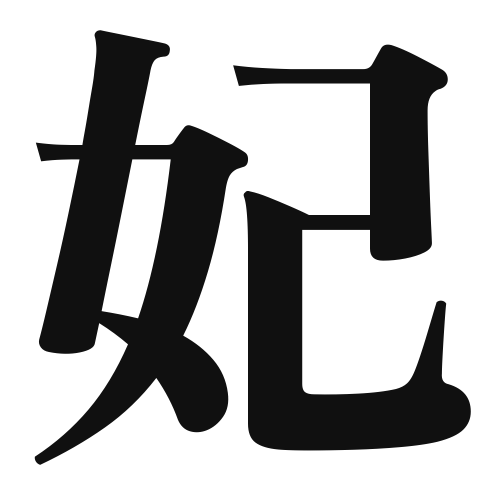1. Overview of Meaning
The kanji “妃” (hi) means “princess” or “wife of a king.” It is often used to refer to a royal consort or a woman of high status in a royal family.
2. Formation and Radical
The kanji “妃” is composed of two parts: the left side “女” (woman) and the right side “非” (not). This combination suggests a woman who is not just an ordinary person but holds a special status. The radical “女” indicates that the character is related to women.
3. Examples of Usage
Common words and phrases that include “妃” are:
- 王妃 (ōhi) – queen or princess
- 妃殿下 (hidenka) – Your Highness
Example sentence in daily conversation:
「彼女は王妃のように優雅です。」(Kanojo wa ōhi no yō ni yūga desu.) – “She is as elegant as a princess.”
4. Synonyms and Antonyms
Similar kanji with related meanings include:
- 姫 (hime) – princess, often used in a more general or affectionate sense.
Antonyms include:
- 王 (ō) – king, which represents a male counterpart in royalty.
5. Cultural and Historical Background
The kanji “妃” has significant ties to Japanese culture, particularly in the context of the imperial family. It is often used in literature and historical texts to describe royal figures.
Proverbs and idiomatic expressions related to “妃” include:
- 「妃のように振る舞う」(hi no yō ni furumau) – “to behave like a princess,” which implies acting with grace and dignity.
